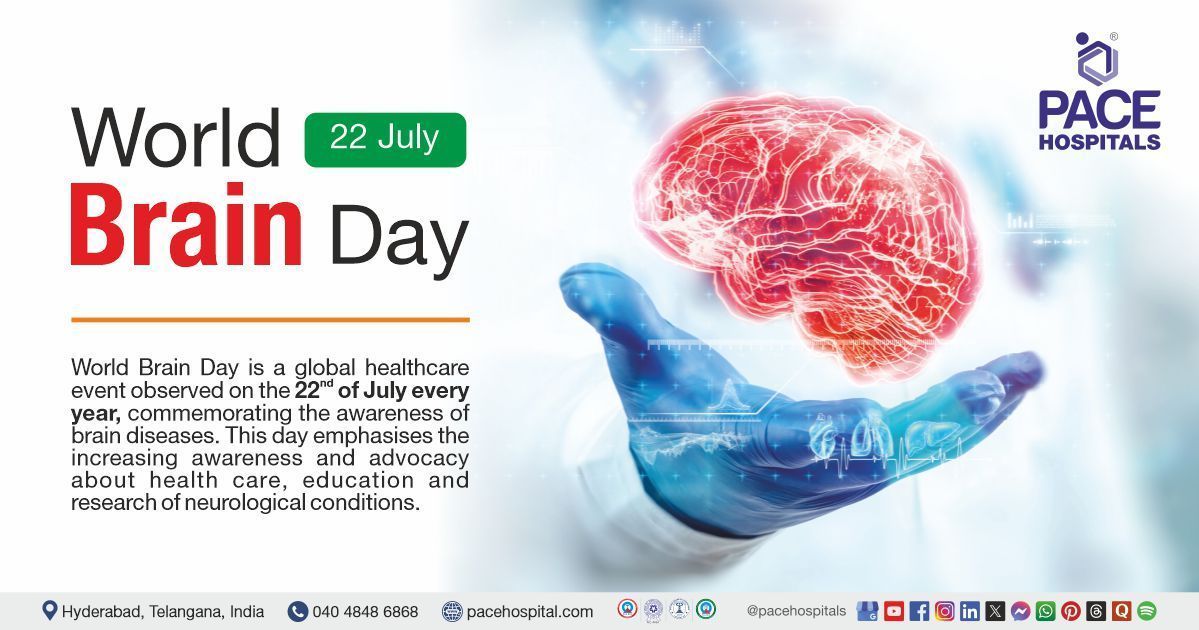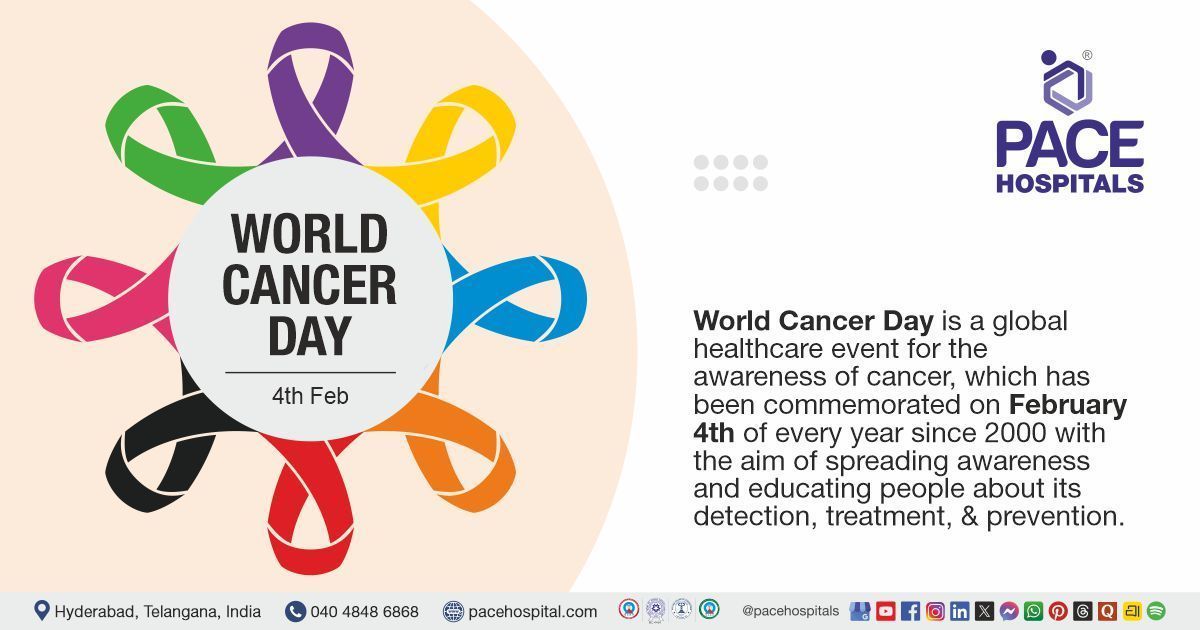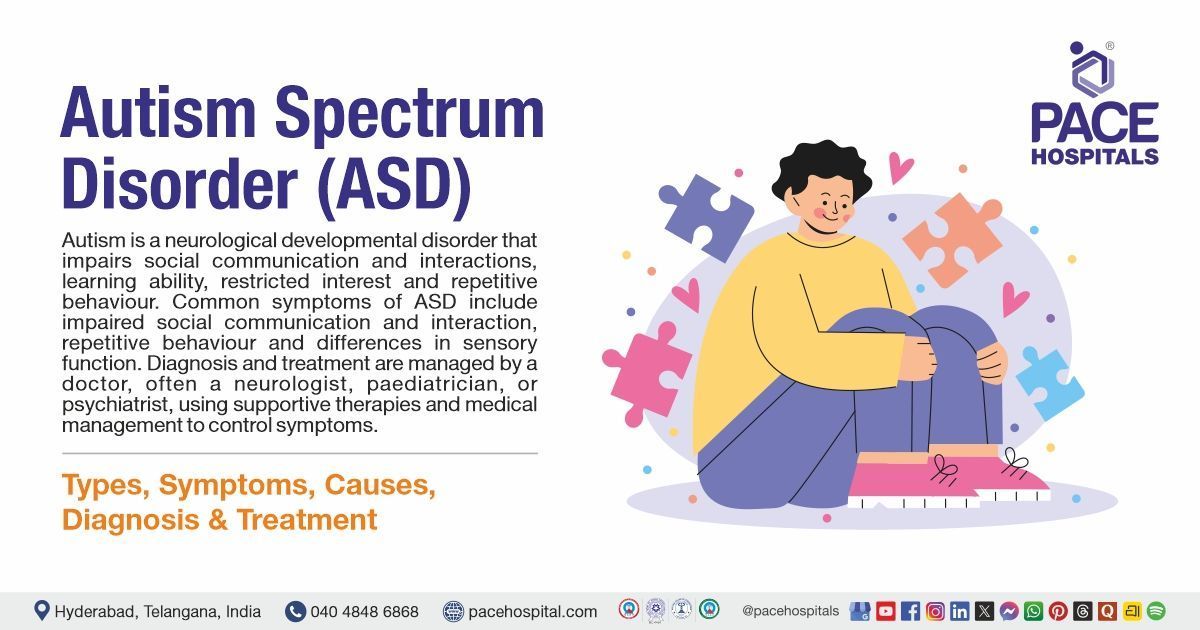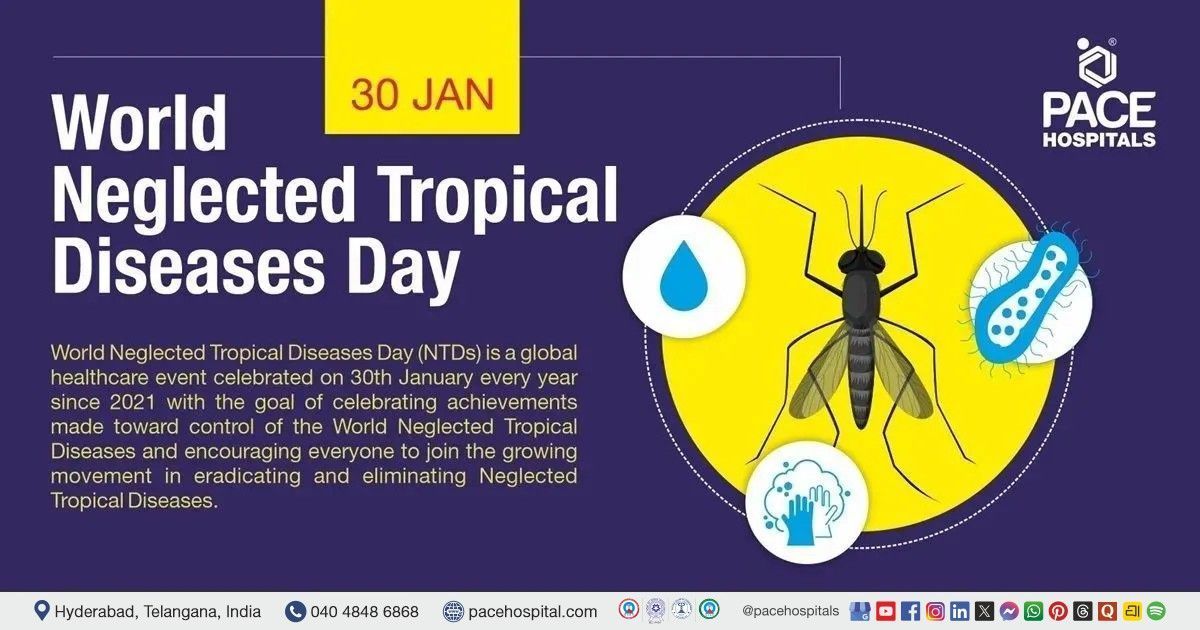World Brain Day 2025: Importance, Theme & History
PACE Hospitals
World Brain Day or International brain day is a global healthcare event observed on the 22nd of July every year, commemorating the awareness of brain diseases. On this day, various local and global organizations and communities gather around, intending to emphasize the increasing awareness and advocacy about health care, education and research of neurological conditions.
Importance of World Brain Day
According to a 2019 research report in India, since the last three decades (1990-2019), the percentage of non-communicable and injury-related neurological diseases in India's overall disease burden has more than doubled, which might be due to the increase in elderly populations.
Among various non-communicable neurological disorders, stroke (37.9%), headaches that include migraine and tension-type headaches (17.5%), and epilepsy (11.3%) are the leading contributors to the neurological burden in India.
Although brain disorders are among the most expensive diseases in the world and are the main cause of disability and death, it is alarming that funding for prevention, treatment, education, and research is limited compared to other diseases. Therefore, raising awareness of brain diseases and recognising them as a high-priority area for disease control is necessary.
Goals of World Brain Day
The five main goals of World Brain Day are as follows:
- Awareness: Brain health awareness on a global scale is essential for mental, social and physical well-being, thereby aiding in lessening the disability associated with brain diseases.
- Prevention: Brain disabilities are preventable, treatable, and rehabilitable.
- Access: Brain health must have access to quality care, treatment, rehabilitation, and assistive technology.
- Education: Education fosters equality for persons with cognitive impairments.
- Advocacy: To achieve optimal brain health, global efforts are required.
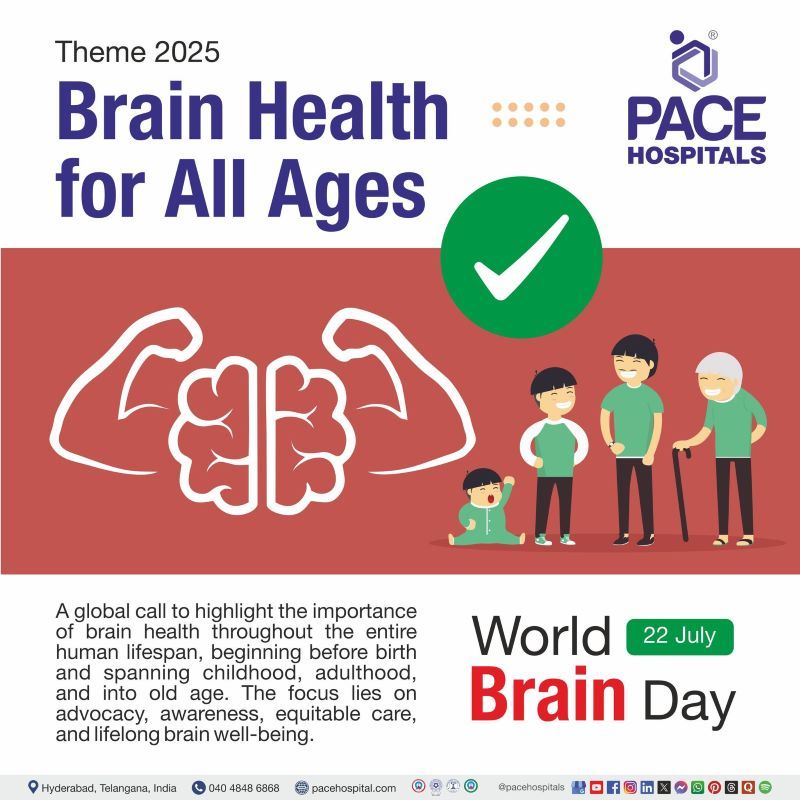
World Brain Day 2025 Theme
This year, 2025, the World Brain Day theme is "Brain Health for All Ages”. This global theme highlights the importance of brain health throughout the entire human lifespan, beginning before birth and spanning childhood, adulthood, and into old age. The focus lies on advocacy, awareness, equitable care, and lifelong brain well-being.
Year-by-Year Themes for World Brain Day
- World Brain Day 2024 theme: Brain Health and Prevention
- World Brain Day 2023 theme: Brain Health and Disability: Leave No One Behind
- World Brain Day 2022 theme: Brain health for all
- World Brain Day 2021 theme: Stop Multiple Sclerosis
- World Brain Day 2020 theme: Move together to end Parkinson's disease
- World Brain Day 2019 theme: Migraine: The Painful Truth
- World Brain Day 2018 theme: Clean air for brain health
History of World Brain Day
On the 22nd of July 1957, the World Federation of Neurology (WFN) was founded. The Public Awareness and Advocacy Committee proposed designating the
22nd of July 2014 as "World Brain Day". This suggestion was presented during the World Congress of Neurology (WCN) Council of Delegates meeting on the 22nd of September 2013, and the delegates enthusiastically embraced it. At their meeting in February 2014, the Board of Trustees approved the idea of making this a yearly endeavour.
Measures for a healthy brain
The following tips can help in having a healthy brain.
- Maintaining a minimum sleep of seven hours on a regular basis.
- Exercise regularly for at least two hours a day before bedtime.
- Taking precautionary steps while driving (wearing helmet/seatbelt).
- Seeking medical attention in case of depression and anxiety.
- Avoiding screen time, two hours prior to bedtime/sleep.
- Avoiding the intake of stimulants such as nicotine and caffeine at least six hours before going to sleep.
- Taking a healthy diet such as green vegetables, beans, seafood, nuts, seeds etc.
Share on
Request an appointment
Fill in the appointment form or call us instantly to book a confirmed appointment with our super specialist at 04048486868

